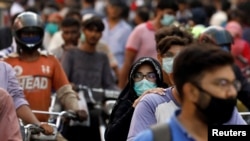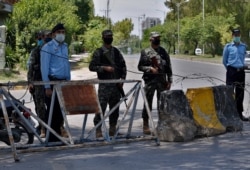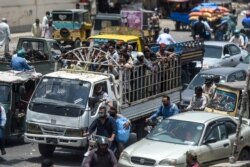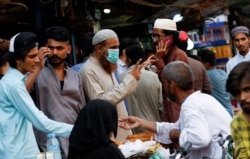Officials in Pakistan have estimated that nationwide confirmed cases of COVID-19 infections could reach up to 1.2 million by the end of July, urging the nation to strictly comply with safety guidelines to help reverse the rising trajectory of new cases.
The national tally of infections has surpassed 140,000, with about 2,700 deaths, since late February when the coronavirus pandemic reached the South Asian nation of 220 million people.
Pakistani officials said Sunday the country has recorded more than 6,800 cases in the last 24 hours.
Asad Umar, the head of the National Command and Operation Center (NCOC) directing Pakistan’s battle against the virus, said Sunday the escalation in COVID-19 infections was a cause of grave concern for the government.
“Unless the current trend is reversed, our experts are telling us the number of cases could double by the end of June and could even reach one million to 1.2 million by the end July,” Umar warned while addressing a news conference in Islamabad.
COVID-19 infections have particularly soared since last month when Prime Minister Imran Khan eased restrictions on commercial and public activities to help restore livelihood means for millions of poverty-stricken families.
Scores of government workers and national as well as provincial lawmakers have also contracted the virus while several others have died.
Umar said that despite a sustained government campaign to promote, among other safety measures, the use of masks in public places, a major chunk of the population ignored the instructions, leading to a rise in infections in Pakistan. This has forced the government to go for a “selective” or “smart” lockdown, he said.
“Now the government has decided to crackdown on people violating safety guidelines in high-risk areas or hot spots, to protect them against contracting the virus and to ensure they are able to conduct commercial activities at the same time,” he said.
Hundreds of hot spots have already been sealed off in Pakistan, including parts of the national capital, over the past few days to contain the spread of the virus.
Khan has rejected calls for enforcing prolonged and complete fresh lockdowns, insisting such a move would hurt the poorest in a country where two-thirds of the population depend on day-to-day earnings.
The prime minister has from the outset argued that about 150 million people in the country would suffer from starvation and his cash-starved government cannot feed them beyond a few months.







